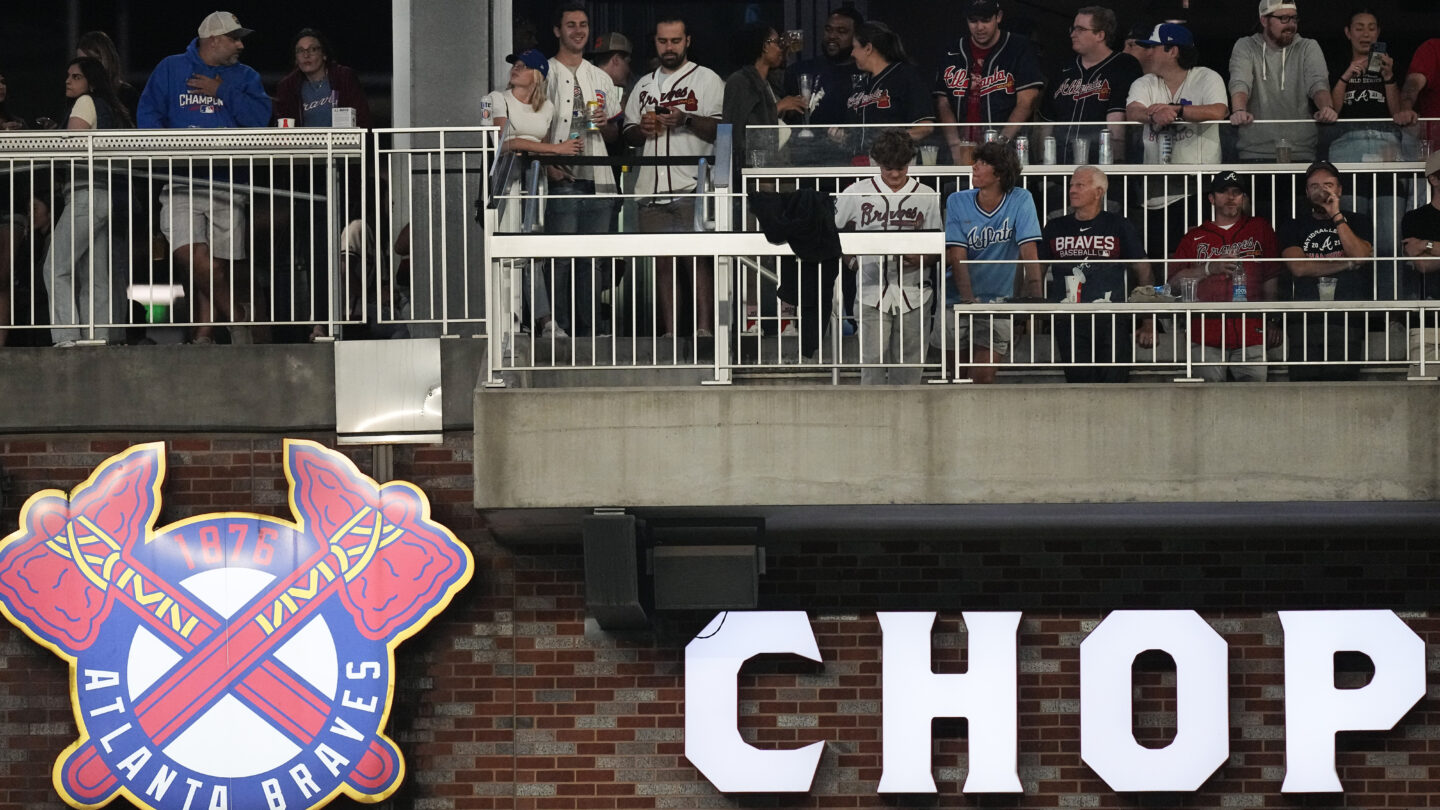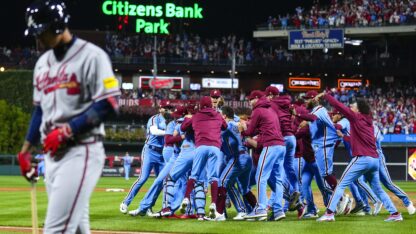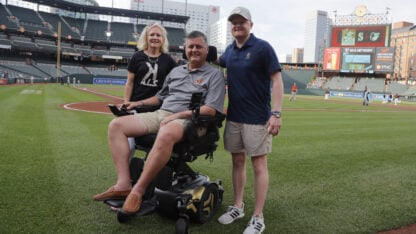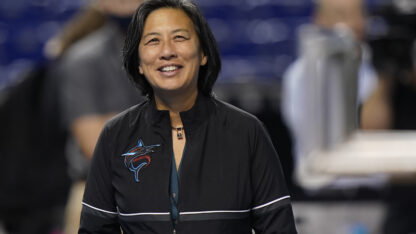More than 70 million fans will attend Major League Baseball games for the first time in six years, a post-pandemic rebound for a sport that instituted its biggest on-field changes in decades.
A pitch clock to speed play — game times are down 24 minutes to 2:40 for nine-inning games — limits on defensive shifts to increase offense, new social spaces at ballparks and technology innovations to speed entry have factored into a 9.2% rise in average attendance to 29,176. Expanding the playoffs to 12 teams, which began last year, led to more than half the teams remaining in mathematical contention.
“Getting back above 70 million is an accomplishment for us,” baseball Commissioner Rob Manfred said Wednesday. “I think it’s the playoff format, balanced schedule, the rule changes this year in terms of the product, the stuff clubs have done locally in terms of seating options.”
Still, the average attendance remains below the record high of 32,785 in 2007 and MLB hasn’t reached 30,000 since 2017.
“We want to be a 70-plus-million-fan business year after year. We want that to become routine for us,” Manfred said. “I think we need to be a little realistic about the effect of, particularly in some of our bigger markets, smaller ballparks limiting your ability to get to the absolute peak that you saw some years ago.”
Attendance is based on tickets sold, not fans who actually walk through turnstiles. The league brought in 68.55 million fans through Wednesday and advance sales for weekend series meant 70 million is essentially assured.
Twenty-four teams were up, led by NL champion Philadelphia and Cincinnati. Of the six clubs with decreases, just two dropped by six figures: the Chicago White Sox and Washington.
Combined with the minors, baseball will top 100 million fans. Minor leagues drew around 32.1 million for 7,884 dates, an average of 4,076 and up 3.9%.
Marketing throughout the sport has been revolutionized.
“In the ’90s and 2000s, generally when you would try to market a fan coming to a ballpark, you would do so through traditional marketing methods and that would include everything from putting billboards out there or putting radio spots or TV spots or print ads,” Atlanta Braves President Derek Schiller said. “We don’t do a whole lot of that at all anymore. Most of the marketing is done as a customized and as much as possible, a one-to-one type of relationship.”
Physical tickets have gone the way of flannel uniforms and pitchers batting. Long collector’s items, World Series tickets were last physically printed in 2019.
MLB says 92% of tickets were digital this year, up from 86% last season. The trend started before the pandemic, with 14% digital in 2017 and 41% in 2019.
“Five years ago, you had to meet your friend off the train or in the parking lot, hand out your tickets, try to find a way to get to a gate that wasn’t backed up,” MLB chief operations and strategy officer Chris Marinak said. “The new experience is that you just email your tickets, you walk through a facial recognition gate where you never have to take out your phone and you tell your friend to meet you at your seats.”
Tickets may soon disappear entirely, replaced by facial recognition software similar to what’s used in Global Entry. Philadelphia started a pilot program of Go-Ahead Entry at the Citizens Bank Park first base gate last month. More teams are likely to adopt it for 2024.
“It seems preposterous if you were to look five years ago that someone would be entering the stadium with just their face and their entire family walking in with them and by next year that will be at most MLB ballparks,” Philadelphia Phillies vice president and chief technology officer Sean Walker said.
Teams also have given ballpark food much thought. Mobile food orders are available for all 30 clubs, including 25 through the MLB Ballpark app, four through Uber Eats and Seattle through a website. Twelve clubs provide for grab-and-go food.
Following a wave of ballpark construction that started in the early 1990s, a new trend of renovation is reducing seating sections and replacing them with fan gathering spaces.
“Anyone thinking about a baseball game has to think beyond that core of baseball fan that’s going to come regardless,” Toronto Blue Jays President Mark Shapiro said. “We have to have a more compelling fan experience.”
Colorado opened The Rooftop high above Coors Field in 2014, spending $10 million to convert 3,500 seats to a party deck.
Cleveland undertook a major renovation for the 2015 and 2016 seasons at Progressive Field that included a two-story bar in right field called “The Corner” and new drink railings below it. They became among the most sought-after seats. More changes are planned for left field in 2024 and 2025.
“We saw this emerging trend where a certain segment of fans were interested in watching the game, but also interested in socializing,” said Alex King, the Guardians’ executive vice president of marketing and brands strategy. “If you have a group of friends, there’s one or two fans in that group that are a little bit more avid fans and the rest of the group is a little more casual. How do you balance everyone’s needs?”
Atlanta expanded the concept when it opened Truist Park in 2017. Not only did the Braves have the Chop House and Chop House Terrace in right field, the new ballpark was surrounded by an entertainment district called The Battery.
Atlanta has self-checkout concessions at Truist Park, much like a grocery store, and has been sending push notifications to some fans when they enter through a gate with content, promotions and discounts. The Braves are testing having fans store payment information to allow food purchases without stopping at a register.
Toronto removed eight sections of Rogers Centre 500-level seats that were vacant for all but five games annually, part of renovations that cut capacity about 7% to 41,500 this year. In place of those sections are the Outfield District, five distinct neighborhoods, plus additional social gathering places.
“We were trying to create amenities that attracted a segment of our fan base that wasn’t coming regularly, give them more of a reason to come,” Shapiro said. “One of them is meant to be the coolest patio bar in Toronto.”
AP MLB: https://apnews.com/hub/mlb









